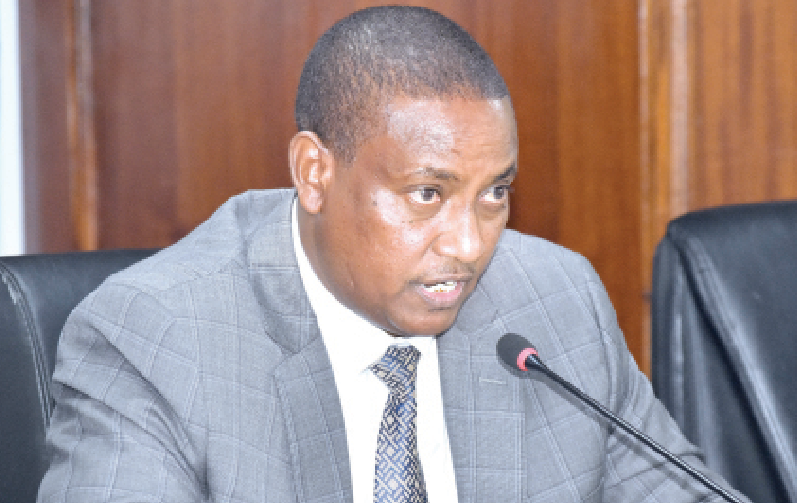NEMA faults tax collector over loss in sugar scandal

The controversy surrounding the disappearance of the 20,000 bags of condemned sugar took a new twist yesterday after it emerged that Kenya Revenue Authority (KRA) ignored an advisory on how to handle and dispose of the commodity.
National Environment Management Authority (NEMA) told MPs that KRA is to blame for the loss of the sugar as it went ahead and allowed the sugar to be distilled yet they had advised that the commodity either be returned back to the host country, be destroyed or be biologically composed.
Appearing before the National Assembly Committee on Trade, Committee acting Director General Mamo Mamo said the role of the authority ended when KRA settled on distillation of the sugar.
Mamo told MPs that they had actually provided the centres where the destruction should have happened if KRA headed to their advice.
He said Vine Park industries where the sugar was to be distilled to ethanol is not among the facilities that the authority has licenced and thus cannot tell whether it was a genuine facility or not.
“The release of imported goods under customs custody (including condemned ones) is the sole mandate of KRA pursuant to the provisions of section 217 (2) of the East Africa Community Customs management act 2004.
The Other government agencies only play advisory roles based on their institutional legal mandates, Mamo said” He added: “The authority therefore cannot be held in any way responsible for the release and loss of the sugar. Documents exist indicating the safe receipt of the sugar to the parties for which it was intended, and in which NEMA was not aware of and was not required to be aware of based on the authority’s legal mandate.”
The revelations came on the day the lawmakers summoned KRA Commissioner General Humphrey Wattanga to appear before it after he snubbed their invitation for the fifth time.
Dire consequences
The committee chaired by Embakasi North MP James Gakuya accused the governor of being contemptuous for ignoring their invitations and thus warned him of dire consequences should he fail to appear before them once he is summoned.
To this end the committee sent away a team that had been sent to represent the Commissioner General.
He said: “We are postponing these sittings until the Commissioner General appears. We want to tell him that this committee is equally important like those other projects he is rushing to do. Let him know that what he is doing is disrespectful to the committee.”
And in documents tabled before the committee, NEMA said it did not in any way initiate, facilitate or authorise the release of the sugar as this was wholly initiated and coordinated by KRA as per their institutional and legal mandate.
Mamo further told the committee that NEMA was not aware of any requirement to be involved in the witnessing of the receipt of the sugar in Thika.
He said: “NEMA was not made aware of any requirement to supervise the distillation of the sugar into ethanol, an industrial undertaking for which the authority has no role anyway. Nema did not advise KRA to have the sugar distilled into ethanol as a mode of destruction. The best option was to re-export, after we made this advisory we did not get any communication from KRA.”











